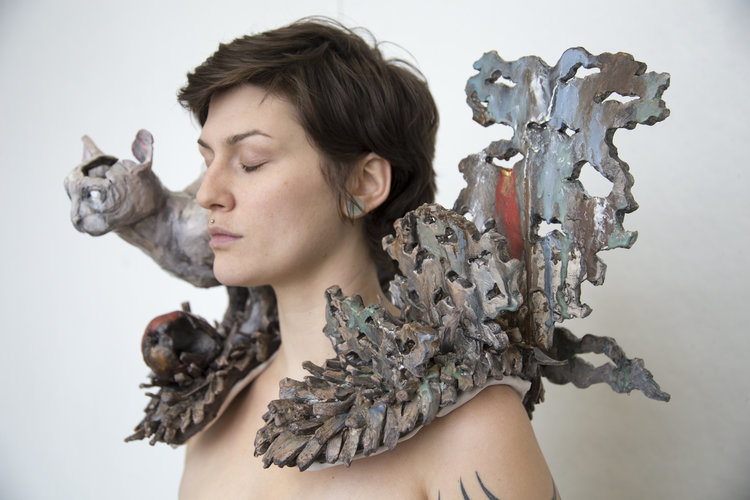Page 92 • (1,337 results in 0.017 seconds)
-

Namibia, where she essentially built her classroom—from the daily lessons to the posters on the walls. “I learned what it was like to kickstart a music classroom from nothing,” Jessa says. “I created my own safe space, and that was really fun.” Read Previous Inspired by Women: Cora Beeson’s research in Indonesia began with her Taiwanese Grandmother’s caretaker Read Next Creative Community: Autumn Thompson ’24 reimagines PLU spaces—in the art gallery and the residence halls COMMENTS*Note: All comments
-
Welcome Tamara Williams, executive director of the Wang Center for Global Education, discusses PLU’s holistic approach to global education and its role in an increasingly interconnected world amid conflict and uncertainty. Read More Oaxaca An undocumented PLU student shares her experience going back to Mexico — for the first time since her family relocated to the United States — as part of the Oaxaca Gateway program. She opens up about her identity struggle and the valuable lessons learned abroad
-
Concert Band. I first learned how to play the trumpet in 5th grade, then played in the Ballou Jr. High Concert band for 3 years and the Rogers High School Wind Ensemble in 10th grade, before studying at Pierce through the Running Start Program for my last two years of high school. Now that I am attending PLU, I am busy with my three business classes, two ensembles, private lessons, trumpet ensemble, and other commitments at home and at church, which leaves very little time for leisure. However, when I
-

-high school plan was to go to the local community college and go to night school and during the day I would work at a teriyaki restaurant,” Kim said. “Of course getting paid under the table.” But one of Kim’s high school track friends was going to PLU and told him about the merit-based scholarship opportunities he could qualify for. So Kim applied and took a Greyhound from Portland for Presidential Scholarships Weekend to interview for one of PLU’s five full-tuition Regents’ Scholarships. He was
-
percent of the midterm grade; students may also apply these and other related terms in high-stakes essays. Day 2: Students will be able to analyze our class qualitative data: search for patterns and meanings. Low-stakes assessments: in-class written reflection about class activity; qualitative data analysis applied later in semester activities. High stakes assessment: none currently. Day 3: Students will be able to read a bivariate table and draw conclusions about our class based on our survey data
-
Diversity Requirement. The Distributive Core: Ways of Being and Knowing (24): Creative Expression (CX) (4): Students will learn artistic processes and evaluate print, visual, and performing arts. Engaging the Natural World (NW) (4): Students will learn methods to develop and test theories and understandings of the physical and natural phenomena that shape our world. A lab, field experience, or applied component is required. Interpreting Text (IT) (4): Students will learn to analyze texture, examining
-
): Currently majoring in one of the following core engineering/applied sciences disciplines (Aeronautical/Aerospace Engineering, Chemical/Material Science, Computer Engineering/Science, Civil/Structural Engineering, Electrical Engineering, Engineering Technology, Industrial Engineering, Material Science, Manufacturing Engineering, Math, Mechanical Engineering, Physics, Software Engineering, Systems Engineering, Industrial Engineering Technical, Industrial Management, Operations Research, Engineering
-

the next step was; whether academia or professional business. I didn’t get into grad school my first round of applying in 2014, but didn’t want to stop making. I ended up getting access to a print studio in Seattle and a ceramic studio in Tacoma, and working at a tattoo shop to make ends meet. I set up solo shows of my work around Tacoma and Seattle to give myself deadlines and a portfolio. A colleague told me about Post Bacc programs in ceramics, so I applied to a few programs to push my work
-
planet, and transform local communities. Known as “Tech for Social Impact,” these strategies have the potential to expand the capacity of organizations and communities to address and meet social challenges. (45 minutes plus audience Q&A) Concordia Summit, September 2021, New York City, “Evolving higher education to spark social innovation and impact locally: An applied model from Pacific Lutheran University” YouTube video featuring PLU’s George Zeno, Dr. Mike Halvorson, Dr. Mike Mulder, and alumna
-
! Once the edits were completed, I applied some subtle EQ changes and exported the tracks for the album. Erik sent the tracks over to a production company, who in turn created the physical copies of the album, which is currently available for purchase on iTunes. While I doubt it will ever make the “top 40”, I’m very happy with how the album came together. Future Recordings I’m very grateful to both Erik and Ed for the opportunity to work on the album. While album production isn’t necessarily an
Do you have any feedback for us? If so, feel free to use our Feedback Form.


